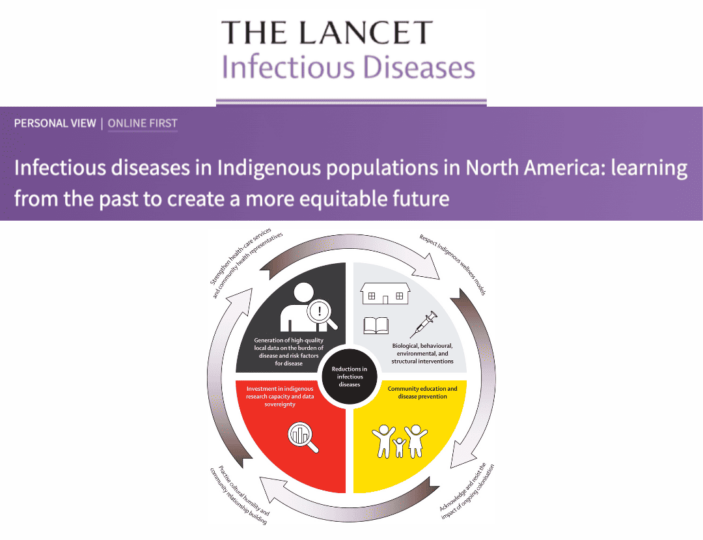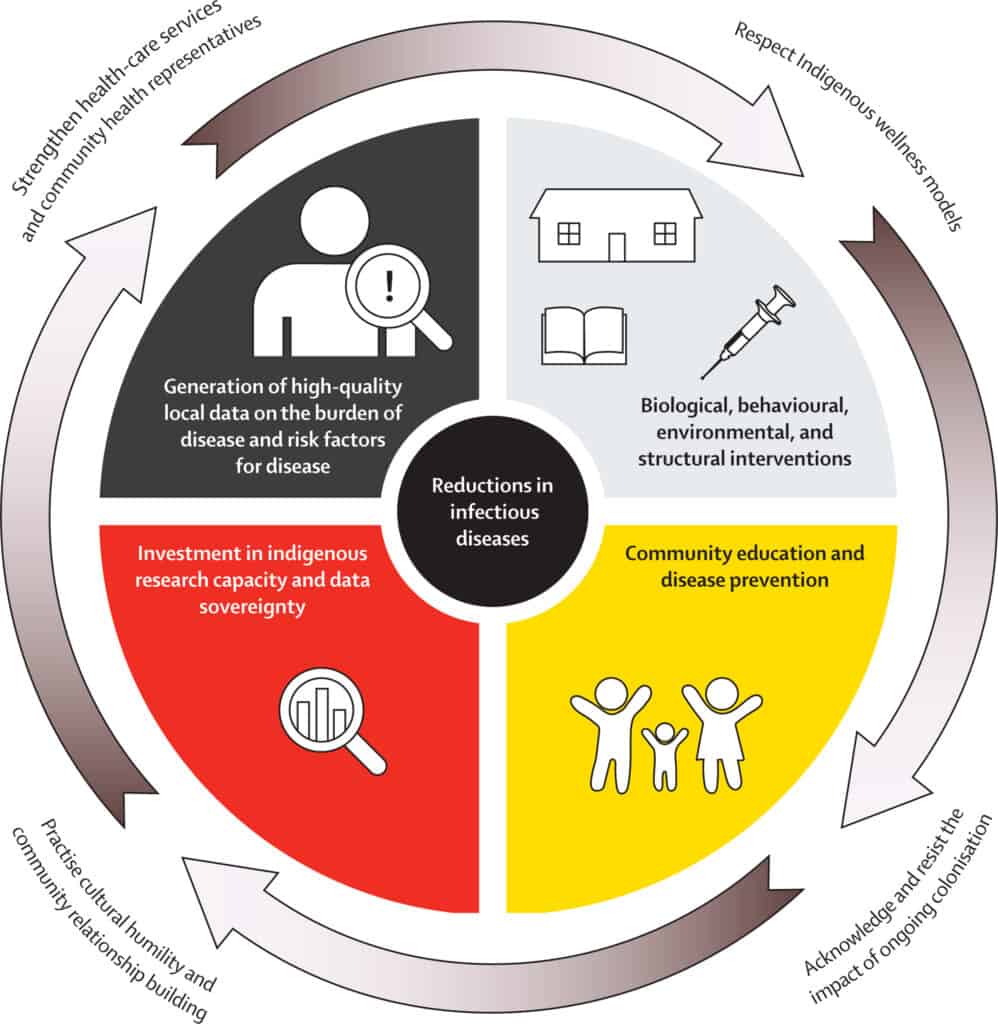
May 2023 – The Johns Hopkins Center for Indigenous Health is proud to announce a new publication in The Lancet Infectious Diseases. Former CIH Scholar Dr. Naomi Lee (Onödowága) and current CIH Director of Infectious Disease Programs Dr. Laura Hammitt led a team of co-authors representing different Indigenous communities, scholarly disciplines and institutions including Northern Arizona University and University of Saskatchewan in developing and writing this piece. The collaborative publication provides historical context and case studies that illustrate both challenges and successes related to infectious disease mitigation in Indigenous populations in the USA and Canada.
The authors propose a framework for achieving sustainable improvements in the overall health of Indigenous people, stating,
“We must start by acknowledging the enduring effects of colonisation and assimilation tactics, and the existence of structural racism in modern society. To overcome these effects, government and health-care providers should focus on cultural humility (respect for tribal sovereignty, active self-reflection, and the addressing of power imbalances, etc) and community power building.”

Co-author Deionna Vigil (Tewa), is a Senior Research Program Coordinator with the CIH Infectious Disease team while also pursuing her Master of Public Health in infectious diseases and vaccinology at the University of California, Berkeley. Deionna reflected, “As a MPH student and someone who is passionate about upstream interventions for infectious disease prevention in Indigenous communities, being part of this team was a tremendous experience because it was a collaborative process centered on Indigenous voices, with support from critical allies. I often hear researchers and clinicians wondering what they can do to help Indigenous populations and the framework we propose provides what I think will be an essential guide.”
The authors elaborate on the framework as follows:
“We propose a framework for achieving sustainable improvements in the overall health of Indigenous people, including reductions in infectious diseases (figure 2). We must start by acknowledging the enduring effects of colonisation and assimilation tactics, and the existence of structural racism in modern society. To overcome these effects, government and health-care providers should focus on cultural humility (respect for tribal sovereignty, active self-reflection, and the addressing of power imbalances, etc) and community power building. Additionally, health care should recognise the holistic approaches to health reflected in Indigenous wellness models. Although safe and efficacious vaccines have greatly reduced the burden of infectious diseases, fundamental changes to laws and policies are needed for upstream disease prevention and control.”
Read more in The Lancet Infectious Diseases here.